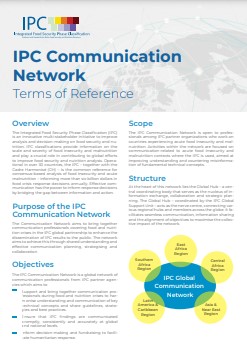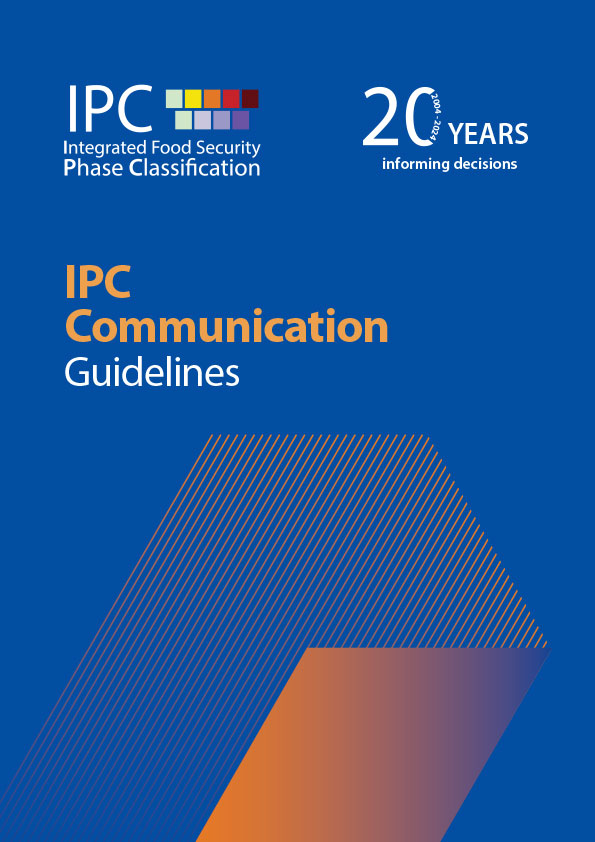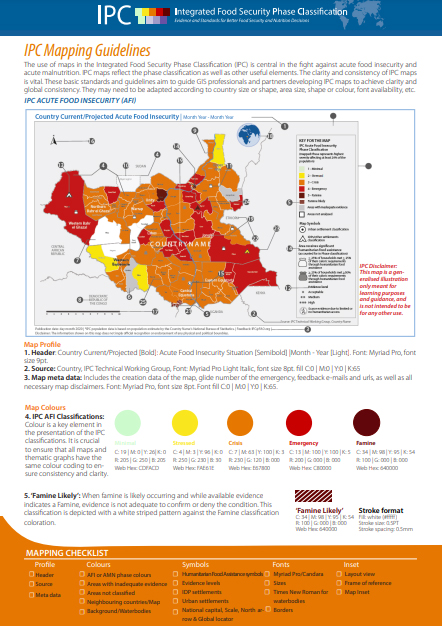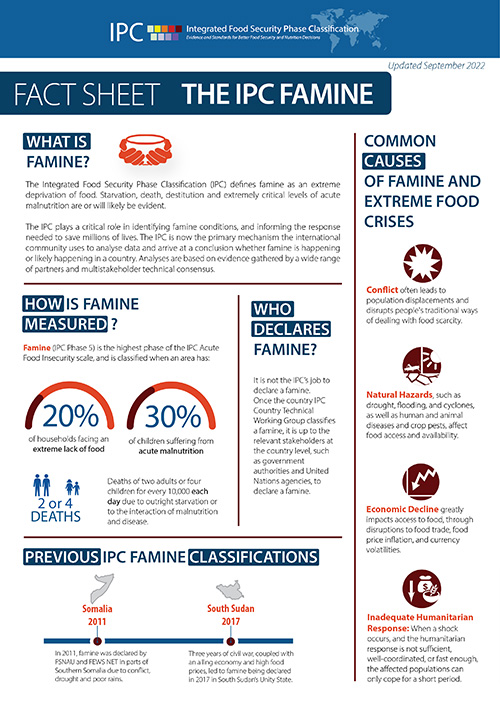The IPC Communication Network
IPC Communication Guidelines
The Integrated Food Security Phase Classification (IPC) launched a comprehensive set of guidelines today designed to enhance communication surrounding acute food insecurity and malnutrition.
With food and nutrition crises persisting – affecting millions of people in different parts of the world – demand for actionable information has never been higher. Effective communication of acute food insecurity and malnutrition information must clearly and succinctly describe the context, causes and outcomes.
Based on the IPC Technical Manual Version 3.1, these guidelines are intended for individuals involved in communication, advocacy, media reporting, humanitarian response planning, funding, and/or reporting. Their purpose is to assist communicators in effectively informing non-specialist audiences about IPC findings in a manner that is accurate, informative, accessible, and empowering.
The IPC Communication Guidelines are the result of a collaborative effort involving communicators and technical experts from 19 partner agencies. This collective work has led to the creation of a robust communication framework.
The guidelines are designed to empower communicators, media professionals, technical officers, and decision-makers with the tools to communicate IPC acute food insecurity and malnutrition findings clearly and accurately.
Adhering to these shared communication principles can steer public discourse towards clear understanding and foster informed and effective decision-making and response. These guidelines cover various topics, including key concepts, definitions of IPC phases and different approaches to communicating effectively to the lay public.
The IPC supports decisions in over 30 countries globally, including in the most complex contexts, such as Afghanistan, the Democratic Republic of Congo, the Gaza Strip, Haiti, Somalia, South Sudan, Sudan and Yemen, among others.
This year, the IPC initiative celebrates its 20th anniversary since its inception. It systematically provides information on the scale and severity of food insecurity and malnutrition, where food and nutrition crises prevail.
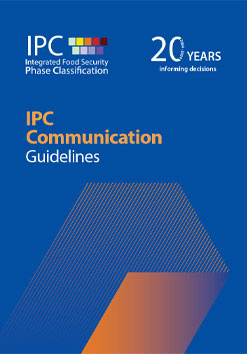
Download the IPC Communication Guidelines
About the Network
The Communication Network aims to bring together communication professionals covering food and nutrition crises in the IPC global partnership to enhance the dissemination of IPC results to the public. The network aims to achieve this through shared understanding and effective communication planning, strategising and collaboration.
The IPC Communication Network is a global network of communication professionals from IPC partner agencies which aims to:
- Support and bring together communication professionals during food and nutrition crises to harmonise understanding and communication of key technical concepts and share guidelines, strategies and best practices.
- Ensure that IPC findings are communicated promptly, consistently and accurately at global and national levels.
- Inform decision-making and fundraising to facilitate humanitarian response.
The Data Tools
The IPC Mapping Tool
The IPC Population Tracking Tool
About the IPC

The Integrated Food Security Phase Classification (IPC) is an innovative multi-stakeholder initiative to improve analysis and decision-making on food security and nutrition.
Download (en)
Télécharger (fr)

The IPC provides a common scale for classifying the severity and magnitude of food insecurity and acute malnutrition, which improves the rigour, transparency, relevance and comparability of food security and nutrition analysis for decision-makers.
Download (en)
Télécharger (fr)

At the global level, the IPC is governed by the IPC Global Steering Committee and is composed of senior officers representing the 15 partner organisations. At the country level, Technical Working Groups (TWGs) form the foundation of the IPC governance structure.
Download (en)
Télécharger (fr)
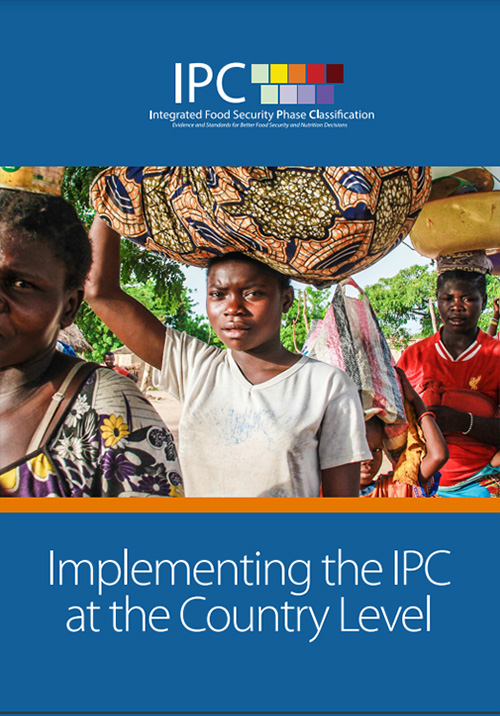
At the country level, implementation is led by the IPC Technical Working Group (TWG), hosted by the government and composed of representatives of the government, United Nations agencies, specialised agencies and NGOs.
Download (en)
Télécharger (fr)
Nicholas Haan, the creator of the Integrated Food Security Phase Classification (IPC) and Advisor to the IPC Global Support Unit, breaks down the IPC Acute Food Insecurity Scale. The Acute Food Insecurity Scale classifies food insecurity found at a specific point in time and of a severity that threatens lives or livelihoods, or both, regardless of the causes, context or duration.
Do you need any further information?
If you need any further information contact our Communication Team, please email [email protected]. Please include your contact information.
Join our mailing list

